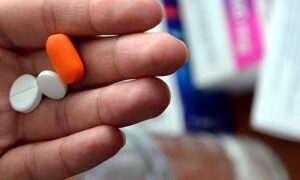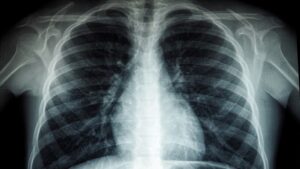[ad_1]
black womenof less obvious depression It was revealed in a new study that it can show symptoms.
Depression Although the symptoms look different for everyone New York University (NYU) Rory Meyers School of Nursing and Columbia University School of Nursing’A new study led by researchers at MD suggests that doctors may overlook or fail to treat symptoms of depression in black women.
The study, published Dec. 13, analyzed symptoms of depression in 227 black women. The data were first collected as part of the Intergenerational Effect of Psychological and Genetic Factors on Blood Pressure (InterGEN), which examined black mothers and children to understand the genetic, psychological, and environmental factors that contribute to high blood pressure.
According to Independent Turkish, researchers found that black women with depression fatigue, insomnia, irritability ve decreased libido found that they were more likely to report showing symptoms of self-criticism and self-blame, as well as physical symptoms such as

BLACK WOMEN ARE MORE PROBE TO SAD
Common symptoms of depression include malaise, loss of interest in activities, changes in appetite or sleep, and feelings of hopelessness or worthlessness. On the other hand, the researchers note that the large number of studies on symptoms of depression done in “predominantly white people” makes it more likely that symptoms of depression in BIPOC (black, indigenous and non-white people) or other racial minority groups will be overlooked.
D., lead author of the study, a postdoctoral researcher at NYU Rory Meyers School of Nursing. “Based on our findings, we can say that it is possible for healthcare providers to overlook the symptoms of depression in black women, leading to inadequate diagnosis and treatment,” Nicole Perez said in a statement.
In fact, according to the U.S. Centers for Disease Control and Prevention (CDC), Black Americans, and black women in general, are more likely than white Americans to feel sadness, hopelessness, and feelings of worthlessness. On the other hand, only one in three black adults who need mental health support actually have access to it. This is probably due to the many barriers that people of color face in accessing mental health care, such as access to decent health insurance, socio-economic inequalities or negative attitudes towards mental illness and stigma.
Worse still, according to Mental Health America, American Psychology Less than two percent of the association’s black members are likely to lead to implicit biases among doctors and patients, and even examples of racism in medicine.
“My hope is that these findings will contribute to the evolving dialogue about how depression can appear differently from person to person,” Perez added.
“And I hope these findings raise awareness of the need for more research in historically understudied and minority populations. So we can better detect symptoms and reduce overlooked disparities in care and health.”
[ad_2]






